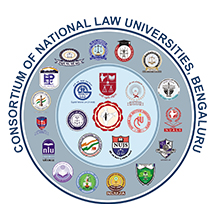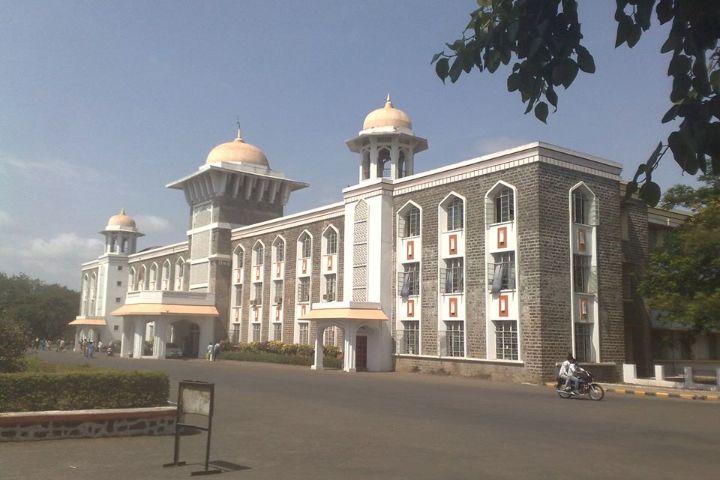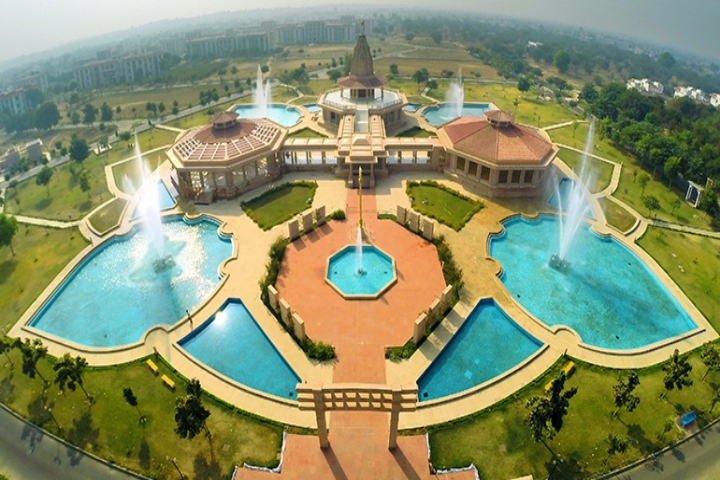
Comparative Law Course Details - Fees, Subjects, Syllabus, Duration, Eligibility, Career Scope
What is Comparative Law
Comparative Law is a sub-field of law that provides knowledge of legal systems in different countries. It aims to identify the strengths and weaknesses of diverse legal systems, both in terms of their content and implementation. Many universities offer Comparative Law courses at both undergraduate and postgraduate levels. The law courses emphasise the understanding and comparison of legal systems and different laws including international law, human rights law, constitutional law, property law, and criminal law.
With Comparative Law courses, students can learn to make strategies to deal with complex legal issues that arise in the modern globalised society. They can develop an understanding of a variety of topics related to various jurisdictions while recognising potential conflicts in laws between regions or countries. Pursuing Comparative Law courses opens up a variety of career paths for students in diverse fields, including legal research and teaching, public policy formation and implementation, corporate legal practice, and dispute resolution.
Comparative Law- Important Dates and Events
- 7th December 2024- CLAT result out
- 9th December 2024-CLAT 2025 Counselling Registrations Started
Highlights - Comparative Law
| Particulars | Values |
|---|---|
Branch Name | Comparative Law |
Degree | LLM, M.Phil |
Duration | 1-2 Years |
Admission Process | Entrance Examination |
Top Exams | CLAT PG |
Careers Options | Legal Advisor, Lawyer, Judge, Legal Researcher, Policy Analyst, Regulatory Compliance Officer |
Average Salary | Rs 4.5 LPA |
Top Recruiters | Law Firms, Government and Public Sector Organisations, NGOs, Research and Policy Institutes, Academia |
Top Law NIRF Ranking 2024
Students are advised to choose the law institute based on the NIRF ranking 2024. Generally, National Law Institutes maintain top positions and rankings depending on the educational facilities and the institute's stature. In the table below, students will find a list of top Law institutes based on NIRF Ranking 2024.
| Top Law Colleges | NIRF Rankings (2024) |
|---|---|
1 | |
2 | |
3 | |
4 | |
5 | |
6 | |
7 | |
8 | |
9 | |
10 |
Eligibility Criteria (UG & PG) of Comparative Law
In this section, we will discuss the eligibility criteria of undergraduate and postgraduate degrees in Comparative Law. Candidates can check the official website of the college or the programme brochure to know the eligibility details.
Eligibility Criteria for UG Courses
To pursue Comparative Law courses, candidates are required to meet certain eligibility criteria. The eligibility criteria for the course vary from one institution to another and are based on the specific programme. As the Comparative Law courses are offered at the master's level, we have discussed below the eligibility criteria for the postgraduate Comparative Law courses.
| Eligibility Parameters | Details |
|---|---|
Educational Qualification | 10+2 from a recognised Institute in India for an integrated law degree Bachelor's degree from a recognised institute in India to apply for LLB |
Minimum aggregate score requirements | 50 per cent aggregate score (5-10 per cent relaxation for candidates belonging to the reserved categories) |
Entrance Exams | Candidates need to appear for relevant entrance examinations (if any) |
Top Entrance Exam for Comparative Law
Several colleges take admission based on the merit of a candidate while some colleges take admission tests or provide admission based on the performance in any national-level Law Entrance Exam. Some law top entrance exams we have mentioned below.
| Exam Name | Conducting Body | Exam Schedule |
|---|---|---|
Consortium of NLU's | ||
Pearson VUE | ||
NLU, Delhi | ||
State Common Entrance Test Cell - Maharashtra State | - |
Eligibility Criteria for PG Courses
Those interested in studying PG-level courses in comparative law should fulfil some basic eligibility requirements. Most of which are similar to other law branches. In the table below, we have discussed the Comparative Law eligibility criteria for PG degrees
| Eligibility Parameters | Details |
|---|---|
Educational Qualification | LLB from a recognised institute in India |
Minimum aggregate score requirements | 50-60 per cent, of candidates belonging to the reserved categories may get some relaxation of 5-10 per cent |
Top Entrance Examinations for PG Courses
In the table below, we have mentioned the popular entrance examinations for postgraduate-level courses in Comparative Law.
| Exam Name | Conducting Body | Exam Schedule |
|---|---|---|
Consortium of NLUs |
College Predictors VIEW ALL
Scope of Comparative Law in India and Abroad
Comparative Law deals with the study of different legal systems and international law. There is a significant scope of Comparative Law in both India and abroad, offering diverse opportunities and legal professionals and academics. The field of Comparative Law plays a crucial role in encouraging legal understanding, harmonisation, and cross-cultural legal analysis.
After Comparative Law courses in India, graduates can pursue legal practice and work as legal advisors, consultants, or advocates in both public and private organisations. They can also pursue careers in teaching and research in law colleges and institutions.
With globalisation, the scope of Comparative Law is very vast abroad. It opens up a variety of employment opportunities for graduates in international law firms, governments and public sector organisations, NGOs, academia, and research institutions. By pursuing Comparative Law courses, students will be able to deal with complex legal systems, bridge cultural gaps, and contribute to global legal understanding and harmonization.
Course Fees Comparative Law
| Minimum Fees | Maximum Fees | |||
|---|---|---|---|---|
| Private | Government | Private | Government | |
| PG | ||||
Course Subjects
The Comparative Law syllabus and subjects can vary depending on the specific programme and the institution. In addition to core subjects and topics related to comparative law, the course syllabus also covers research methods and a dissertation. With the Comparative Law course syllabus, students will gain an understanding of current legal issues and their effects in both local and global contexts. We have mentioned below the subjects covered in the postgraduate Comparative Law syllabus.
| Comparative Public Law/System of Governance | Public International Law |
| International Human Rights | Law and Justice in Globalised World |
| International Organisations | International Dispute Settlement |
| International Criminal Law | International Economic Law |
Careers in Comparative Law
Upon completion of Comparative Law courses, graduates can explore a variety of opportunities in the legal field. They can find career options in legal practice, international organisations, policy-making, academia, and research. They can also explore employment opportunities in multiple institutions including private law firms, corporate companies, public sector entities, and international agencies.
The career prospects in the comparative law domain are quite attractive with excellent job security and handsome pay packages. We have listed below some of the popular job roles one can pursue after Comparative Law courses.
| Job Profiles | Job Description |
|---|---|
Government Lawyer | Government Lawyers work for government agencies, assisting them with various legal aspects. They also help them with formulating, applying, and regulating the policy and regulations. |
Legal Associate | Legal Associates are individuals responsible for coordinating with a company’s clients to understand their legal requirements, and thus formulate them. Their position is mostly under a firm or another lawyer. |
Law Officer | Law Officers are responsible for regulating the legal aspects of an organisation. They also keep the organisation away from legal issues. |
Corporate Lawyer | Corporate Lawyers are experts in the commercial field. They are responsible for ensuring safe transactions for the company and also make sure that the company complies with corporate laws and regulations. |
Legal Advisors are lawyers who generate and present content in large forums and advise internal and external clients as well as other consultants on several legal issues. They also oversee contracts and claims, make drafts, and resolve disputes. |
Upcoming trends
Comparative Law has always held significant importance in a democratic country like India where the citizens of the country have complete faith in the judicial system. There is growing awareness in the citizens regarding their fundamental and human rights and this has encouraged individuals to fight for their civil liberties.
As Comparative Law is an ever-evolving field, it provides useful insights into how different countries deal with similar legal issues. Staying up-to-date with the latest trends will help individuals know every aspect of comparative law. One of the prominent trends in comparative law is the increasing emphasis on transnational legal harmonization, which has been primarily influenced by international organisations that seek to develop common legal frameworks across national borders.
Job Profiles and Top Recruiters
Comparative Law graduates are hired by various top organisations. Graduates can work at private companies, public companies, and corporate firms. They can also establish their law firms or work for a company on a contractual basis. Listed below are some of the top recruiters hiring Comparative Law graduates.
Top Recruiters
- Government Offices
- Academics Research Centres
- Law Colleges
- Courts
- Corporate Law Firms
- World Bank
- United Nations
- International Monetary Fund
- World Trade Organization, and many more.
Average Salary
After completing Comparative Law courses, graduates can explore a variety of roles in the legal sector with great salary potential. The salary of graduates in this field will depend on their skills, experience, industry, organisation, and specific roles. We have discussed below the salary for different comparative law job profiles.
| Job Profile | Average Salary |
|---|---|
Legal Counsel | Rs. 16.5 LPA |
Associate Attorney | Rs. 3.85 LPA |
Chief Legal Officer | Rs. 14 LPA |
Corporate Lawyer | Rs. 9.5 LPA |
Legal Administrator | Rs. 4 LPA |
Legal Advisor | Rs. 5.9 LPA |
Source: AmbitionBox and Glassdoor
Required Skillset for Comparative Law
To pursue Comparative Law and to fully benefit from the course, candidates should have some pre-specified skill sets. They must have a technical understanding and personal attributes. We have listed some of the popular skills required for Comparative Law courses.
- Teamwork
- Critical Thinking
- Good Communication
- Problem-Solving
- Research Skills
- Debating skills
Course Curriculum for Comparative Law
The course curriculum of comparative law is designed to enable law students to acquire knowledge regarding all essential aspects of practical applications of the law. With the course, students will be studying various relevant laws and their applications in practical situations.
The coursework of comparative law is made up of classroom sessions, mock trials, workshops, seminars, internships, case studies, and project work. Students will be expected to understand and appreciate the implications of various laws during the tenure of the course. The subjects might vary based on the college and level of specialisation. Below, we have mentioned the subjects covered in the Comparative Law course curriculum.
- History of Comparative Law
- Global Legal Regimes
- Human Rights about Comparative Law
- Minority Rights Under Diverse Systems
- Judicial Decision-Making
Popular Comparative Law Entrance Exams in India
Frequently Asked Questions (FAQs)
Question: Is Mathematics compulsory in Class 12 for pursuing a Comparative Law course?
Answer :
No, Mathematics is not a compulsory subject in Class 12 in order to pursue a course in Comparative Law.
Question: Are online programs available for Comparative Law courses?
Answer :
Yes, there are various online courses in comparative law that students can take up from top online learning providers and institutes worldwide.
Question: What is LSAT?
Answer :
The Law School Admission Test (LSAT) is one of the entrance tests accepted by several law schools in India for admissions to undergraduate and postgraduate law programs, including comparative law courses.
Question: What are the entrance exams for comparative law courses?
Answer :
Some of the popular entrance exams conducted for comparative law courses in India include CLAT, AILET, MH CET Law, LSAT, and SLAT.
Question: What are the top colleges offering Comparative Law courses in India?
Answer :
Some of the top colleges in India offering Comparative Law courses include SRMU Lucknow, Mody University, and Shivaji University.






.jpg)












